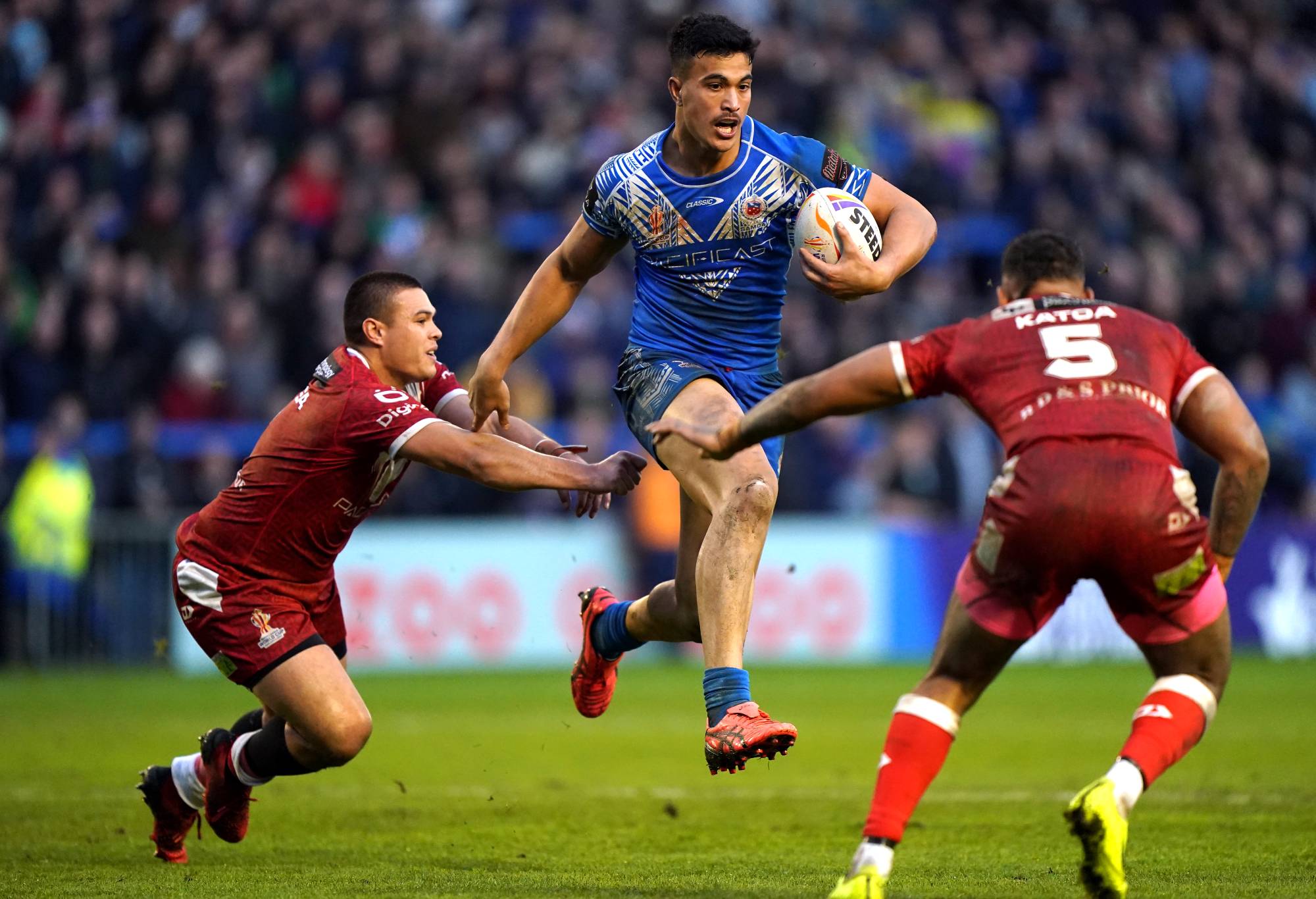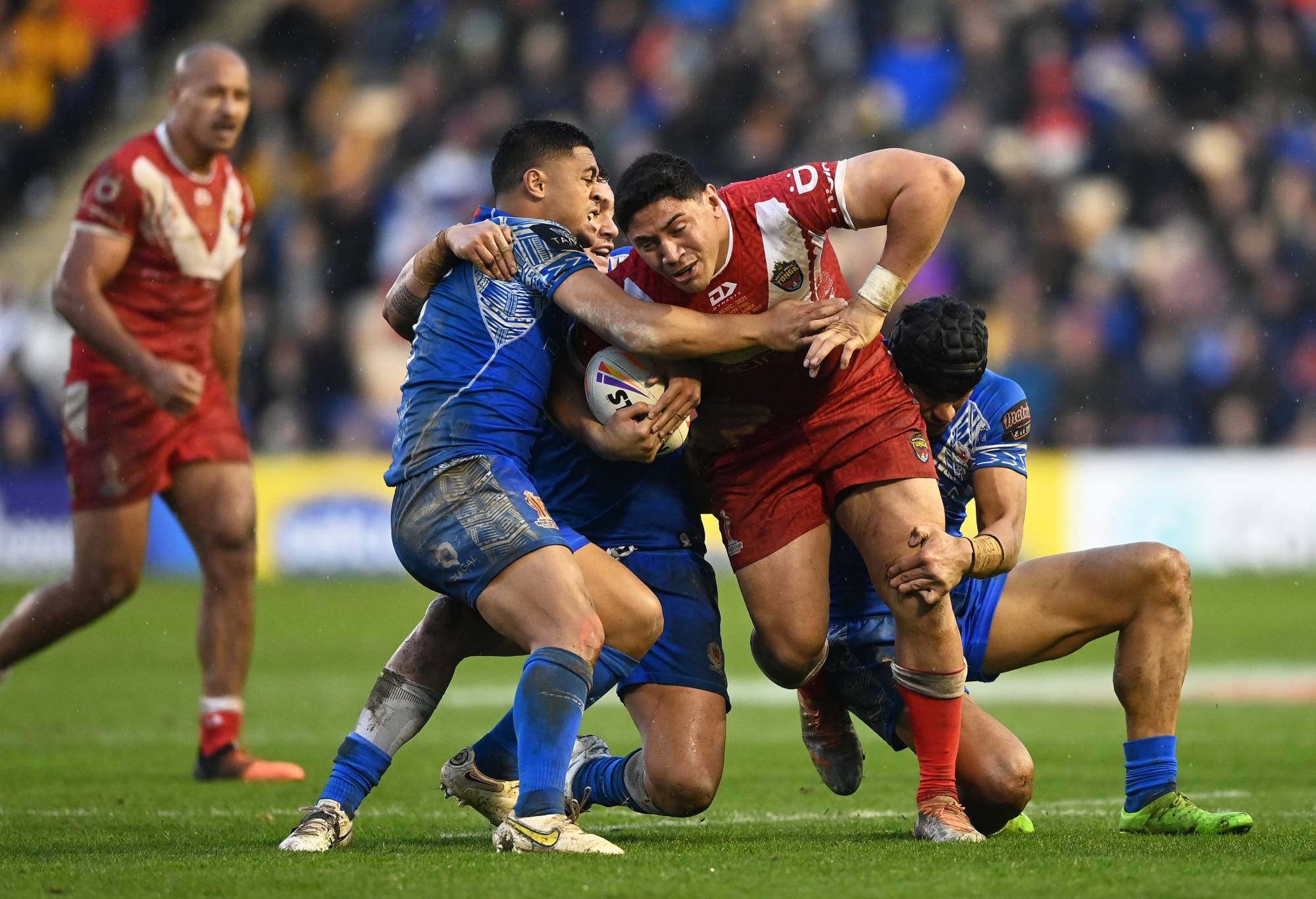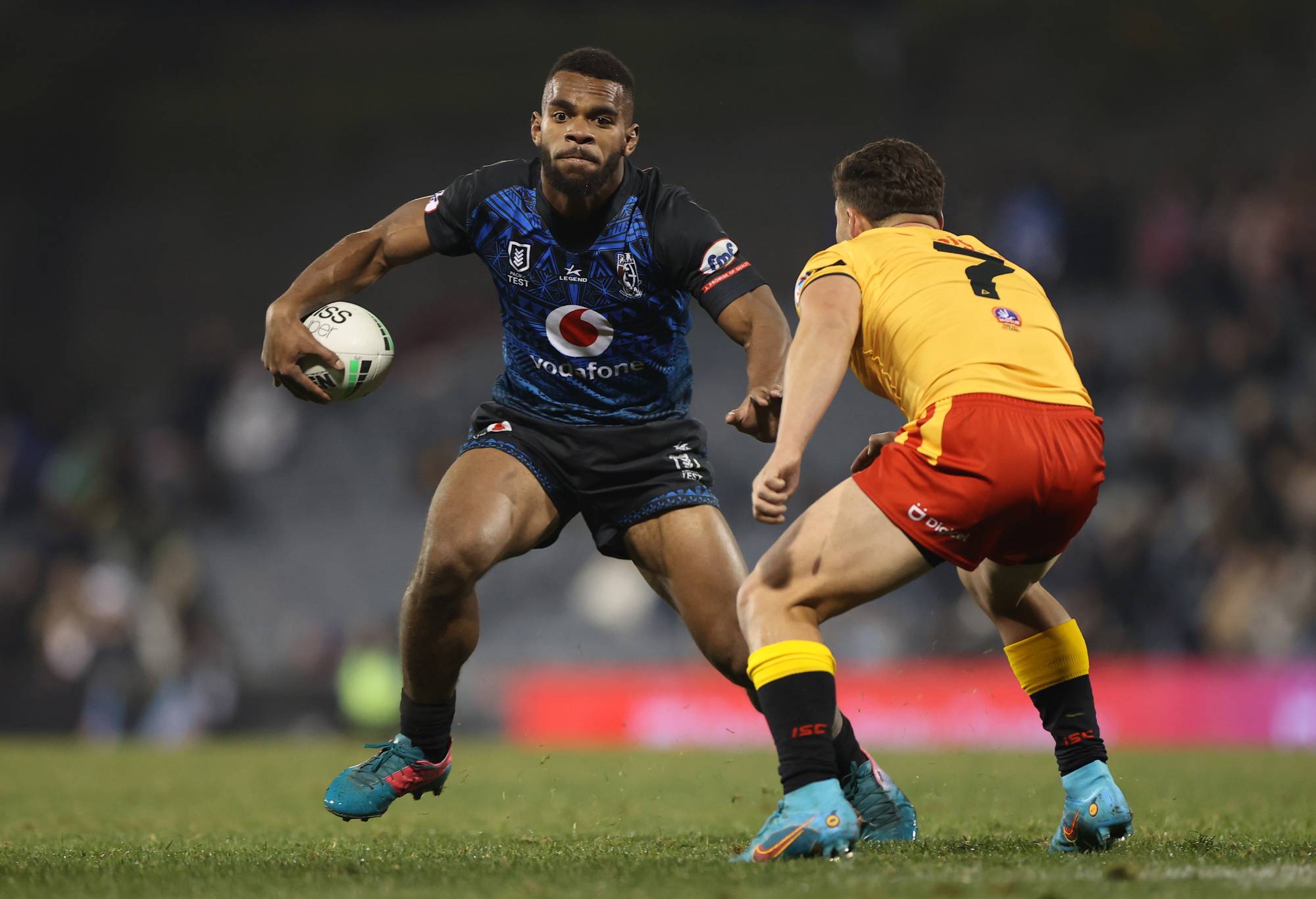Rugby league, as the much-quoted saying has it, has never missed an opportunity to to miss an opportunity.
The sport’s history is littered with could-have-beens, and from the time that the nascent Rugby Football Union decided to waive their stringent anti-professionalism rules to keep Wales and Leicester in their sport onwards, the beneficiary has generally been the other code.
Non-union followers might have missed the decision by World Rugby, the global governing body of rugby union, to launch their ‘Nations Championship’, turning the international game into a closed shop between the six nations of the Six Nations, the Rugby Championship countries of New Zealand, Australia, Argentina and South Africa, plus two more, likely Japan and Fiji.
Much as they were quick to hype it as a ‘historic day’ for Union, those excluded from the top table were less enthused.
“It will kill rugby,” said one South American boss. “It will be impossible to compete with those teams in four or five years. They’re going to go up and the others will go down.”
The second tier nations, including the likes of Tonga and Samoa, were given their own tournament, but are now cut out of competitive action against the biggest 12 countries until 2032, when this cycle ends.
It’s not quite clear if Samoa and Tonga actually voted for the changes – though reports suggest that Samoa and another left out nation, Georgia, might have – and there are promises that second tier nations will get more cracks at the big boys in the years that the Nations Championship isn’t on, but nothing is concrete.
The headline messaging is that anyone outside the 12 is out, and for the foreseeable.
It’s a fair old pulling up of the drawbridge, and comes at a time when those nations might well have expected to announce more clashes with the big countries, not fewer.
As an outside observer, it does seem like a very strange decision from the powers that be in rugby union.
Their just showed that the smaller nations who will now be excluded are better than they used to be while other, bigger countries who will be in don’t seem to be much better.
Fiji (in) just lost to Portugal (out). Italy (in) were flogged by New Zealand and France, while Uruguay (out) weren’t. Samoa (out) were more than competitive against England, Japan and Argentina and could have won all three. The Wallabies barely merit a place at the top table on current performances, but are unquestionably in.
In the Cricket World Cup, also taking place, the World Cup Super League system has been proven to improve the quality of minnow nations. The big nations were forced to play the likes of Afghanistan and the Netherlands, who have now improved out of sight and are putting in performances that were unthinkable even a decade ago.
Of course, cricket is now ditching that format, returning the Dutch and Afghans to playing against each other again, and rugby union is doing the same.
It’s all food for thought for International Rugby League (IRL). They have just announced a new international calendar, the first comprehensive, global framework for Test footy.
The other player in rugby league’s international scene is, obviously, the NRL, and they should have their eyes wide open too.

Samoa’s Joseph Suaali’i (centre) attempts to get past Tonga’s Sione Katoa (right) during the Rugby League World Cup quarter final match at the Halliwell Jones Stadium, Warrington. Picture date: Sunday November 6, 2022. (Photo by Tim Goode/PA Images via Getty Images)
At a time when the two most important parties have finally sat down and agreed how they are going to integrate Tonga, Samoa on a permanent basis, their greatest competitor has just told them that they aren’t part of the plans.
Currently, there are two major issues that those nations face in terms of usurping rugby union as the preferred sport.
First, they don’t play enough games. Toa Samoa coach Ben Gardiner was intent on making this point in his post-match presser following their loss to New Zealand at the weekend.
“For us, we need Test matches,” he said. “Whatever the NRL decides to do, they decide to do. I don’t make those decisions but from our point of view, we want to play Test matches.
“We’ve had an opportunity for a number of our guys to play two Test matches now. We need more of those so we can build up that experience so when we go up against a side like Australia or New Zealand who have guys with 15-20 Test matches under their belt. That’s how we start to compete with those teams.”
It echoes the comments of Seilala Mapusua, the coach of the Manu Samoa union team, who also lamented how seldom he got to work with his national team players.
If the NRL wanted to make a splash to take advantage, they could reinstate the mid-year Pacific Tests to get Tonga, Samoa, Fiji and PNG out on the field during the Origin period.
Even if they didn’t have their NSW and Queensland players, it would still be a worthwhile experience for the group, and show commitment where their major competitor has not.
England already do the same with a mandated midseason international against France, in which they field an all-Super League team. It’s as much about building team cohesion and mentality as much as it is about being the best of the best.
They could also invest in taking games to Samoa and Tonga, rather than playing for the diaspora crowd as neither have hosted matches since the eligibility revolution of 2017, with Apia last seeing Test footy in 2016 and Nuku’alofa all the way back in 2006.
These things cost money, of course, and the Pacific Tests cash comes from the NRL’s coffers – but if they want to be the dominant force in that region, the sunk cost now might be worth more than the opportunity cost of not doing anything.
Given how much traction was generated by last year’s Samoa v Tonga clash on the other side of the world, it’s hard to imagine that it couldn’t be monetised.
The last time they clashed on Australian soil, 17,000 people showed up in Campbelltown, a stadium attendance that hasn’t been topped since.

(Photo by Gareth Copley/Getty Images)
The second issue is that, currently, neither Tonga or Samoa produce their own players.
While rugby league in the Pacific is about as strong as it has ever been, there is one obvious fly in the ointment, which is that the players who currently represent the two big nations are not raised there.
There’s nothing inherently wrong with this, of course, but it does present the threat that, down the line, the Pasifika community might lose eligibility, or more players will simply feel more affinity with Australia or New Zealand and thus want to represent the Kangaroos and Kiwis more than their heritage.
Let’s use Toa Samoa as an example. Two thirds of Samoan New Zealanders – according to government statistics – are born in New Zealand, and the bulk of Samoa-born Australians are older than the average Australian, pointing to a generation that is the parents of the current international players.
Samoa is fast going the way of Greece, Italy and Lebanon in terms of generational profile, which means that the Jarome Luai of 2050 won’t be eligible for them if the rules stayed the same.
Given that the Pacific is the biggest per-capita producer of rugby players of either code, it makes sense that it should be the primary development area for IRL to be looking at, and given the attitude shown by World Rugby towards that part of the world, it seems like they’re pushing at an open door.

(Photo by Mark Kolbe/Getty Images)
Samoa and Tonga need a pathway to give kids raised on union a route into professional sport – just as has already happened in Fiji.
The Bati squad is filled with guys raised on the islands, brought over as youngsters and given the chance to shine. PNG, too, have players taken from domestic footy playing professionally around the world.
A third partner to the IRL and NRL is the Australian Government, whose rugby league diplomacy policy in PNG seems set to deliver a professional presence in that country within the NRL.
Their previous movements in the sport have resulted in the PNG Hunters in the Queensland Cup and Fijian team Kaiviti Silktails in the NSW third grade Ron Massey Cup, with both national teams fielding multiple graduates of those pathways.
The time has come to strike on producing similar outcomes for the stream of talent that comes out of Tonga and Samoa, but has just been told that rugby union doesn’t care about them.
The population of the two combined is less than Fiji’s, though the population of ethnic Fijians – i.e. the ones who make up the bulk of the rugby playing population – is much more similar.
Nobody is calling for a full team based out of the islands like the Moana Pasifika in Super Rugby, but a clear development pathway that could get Samoa and Tonga-raised players into either Australian or New Zealand comps has to be on the agenda to dislodge union as the most viable choice for young athletes.
That might be a development squad along the lines of the Silktails, or a scholarship programme that placed players into clubs.
A sensible NRL club would look at what Penrith have done with regional areas of NSW and wonder if they mightn’t put a similar level of investment into Tonga and Samoa grassroots.
It’s the sort of move that would likely be very cheap – compared, for example, to doing something in the United States – but would produce a talent flow almost immediately.
The Silktails just finished their second complete season and already have players in the national team and with NRL appearances.
Rather than rebranding the North Sydney Bears to have a Pacific name or chucking good money after bad in America, the time is now to strike while the iron is hot and make rugby league the number one sport in the Pacific – it’s an opportunity not to be missed.































































































